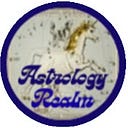Sleep and the Full Moon: Unraveling the Lunar Insomnia Phenomenon
This article may include affiliate links, which means that if you click on one and decide to purchase something, I may receive a commission at no extra cost to you.
(Human directed ai content.)
Sleep and the Full Moon: Unraveling the Lunar Insomnia Phenomenon
Many individuals report experiencing sleep disturbances, such as difficulty falling asleep or restless nights, in the days leading up to a full moon. While the scientific evidence on the connection between sleep and the lunar cycle is still inconclusive, the phenomenon of “lunar insomnia” has been a subject of curiosity and fascination for centuries.
In this article, we explore some possible reasons why some people find it challenging to sleep before a full moon.
1. Moonlight and Circadian Rhythms:
The full moon emits a bright light that can disrupt the darkness of the nighttime environment. Exposure to excessive light, especially blue light from screens or bright moonlight, can influence our internal clock and circadian rhythms, making it more challenging to fall asleep.
2. Evolutionary Legacy:
Some researchers propose that our ancestors may have been more vigilant during full moon nights due to the increased brightness, which could have helped protect against nocturnal predators. This heightened vigilance might have led to altered sleep patterns during the full moon.
3. Biological Sensitivity:
Individuals may have varying degrees of sensitivity to environmental factors, including lunar phases. Some people might be more susceptible to changes in the moon’s brightness, leading to sleep disturbances, while others may not be affected at all.
4. Psychological Factors:
Belief in the full moon’s influence on sleep can contribute to the phenomenon of “lunar insomnia” through the power of suggestion. If someone expects to have difficulty sleeping before a full moon, they may experience heightened anxiety or worry about their sleep, making it harder to relax and fall asleep.
5. Weather and Atmospheric Changes:
During a full moon, there may be weather and atmospheric changes, such as increased brightness or humidity, that could impact sleep quality. These changes might be more noticeable during a full moon, potentially affecting sleep patterns.
6. Hormonal Fluctuations:
The full moon’s influence on hormonal fluctuations, particularly melatonin levels, is still not well understood. Some studies suggest that melatonin levels may vary during the lunar cycle, potentially affecting sleep.
7. Synchronization with Lunar Cycles:
Some individuals may have a natural sensitivity to the lunar cycles, similar to how some people experience seasonal affective disorder (SAD) during specific seasons. This sensitivity could result in altered sleep patterns during certain lunar phases.
Conclusion:
The phenomenon of having difficulty sleeping before a full moon, commonly referred to as “lunar insomnia,” remains a subject of curiosity and intrigue. While scientific evidence on the direct link between lunar phases and sleep disturbances is limited, there are various factors that may contribute to sleep challenges around the full moon.
From changes in light exposure to psychological factors and individual sensitivity, the human experience of sleep and its interactions with environmental and lunar factors is complex and multifaceted.
As we continue to explore the mysteries of sleep and its connection to the natural world, let us embrace the wonder and awe of the cosmos, acknowledging the unique and intricate ways in which the lunar cycle may influence our experiences, emotions, and the enigmatic realm of sleep.
Read More…
Unveiling the Path: Astrological Houses and Their Role in Personal Growth and Self-Discovery
LEGAL INFORMATION
Any links in this article, may be affiliate links. Using my links is free at no extra cost to you, and helps to support my channel. Information in
the articles is not business or investment advice, and these articles are created primarily for entertainment purpose. Thank you for your support!
